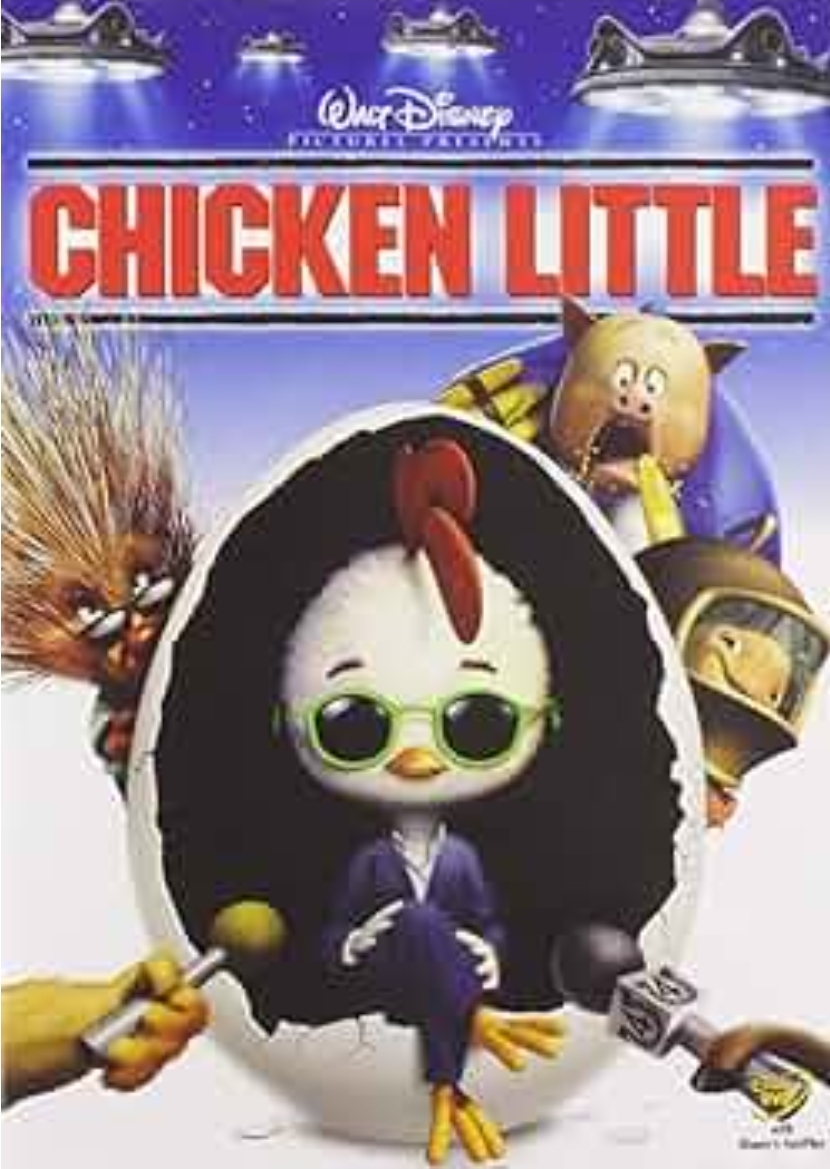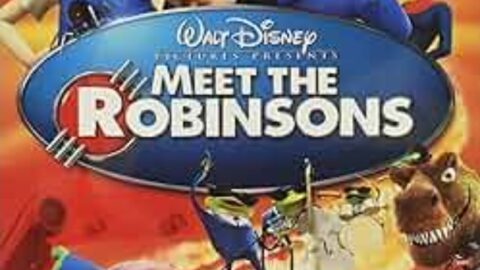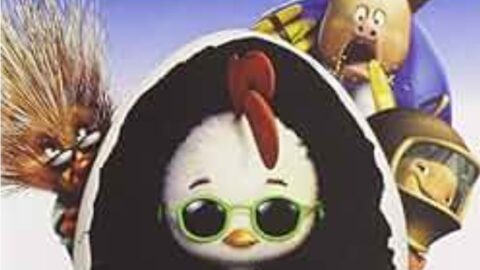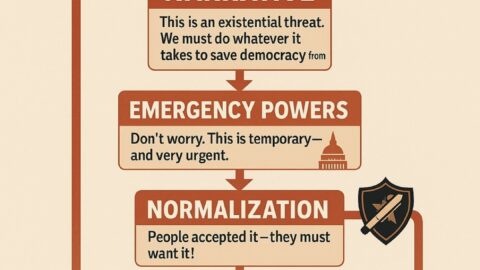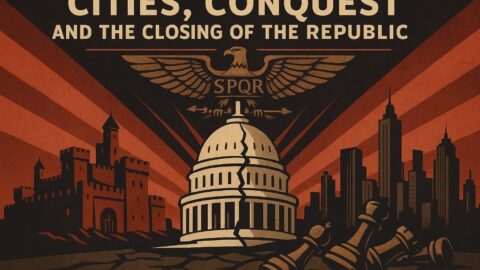Core Question: What happens to truth—and to us—when fear, shame, and status drive the story?
Tagline (spirit of the film): “Today is a new day.”
The Sky Is Falling (Or: Reputation vs. Reality)
Moral Core: Shame, conformity, and the first wound
Little Chicken Little rings the town bell claiming “the sky is falling.” It turns out to be a camouflaged alien panel—but no one believes him. He becomes a civic punchline; his father, Buck Cluck, urges him to stop making waves and “fit in.” Chicken Little internalizes the wound and tries to earn worth through winning (baseball) rather than by telling the truth again.
Lessons
- Shame silences truth. After public humiliation, people start performing for approval rather than pursuing reality.
- Belonging sought through performance breeds anxiety and inauthenticity.
- Parental fear of embarrassment can eclipse parental duty to advocate for their child.
Philosophical Frame
- Hannah Arendt (the social vs. the truthful): Public reputation crowds out truth-telling.
- Existentialism: Identity built on others’ gaze is unstable; authenticity requires risk.
Friends, Outsiders, and the First Alien Signal
Moral Core: Community as counter-shame
Chicken Little’s friends—Abby Mallard (“Ugly Duckling”), Runt of the Litter, and Fish out of Water—believe him. Together they find the cloaking panel and glimpse an alien scout. The town still won’t listen; Buck still prioritizes optics. The kids’ friendship becomes a truth sanctuary where courage grows.
Lessons
- Counterpublics (small circles of trust) keep truth alive when institutions mock it.
- Friendship creates moral oxygen; we become braver together than alone.
- Seeing is not believing when prior narratives (Chicken Little = clown) dominate perception.
Philosophical Frame
- Social epistemology: Who we trust shapes what we think is true.
- Aristotle’s friendship of virtue: Good friends will the good of one another, even against the crowd.
Invasion Panic and the Moral Test
Moral Core: Fear as narrative accelerant
A misread signal spirals into panic: UFOs appear, the town erupts. The kids discover the aliens aren’t hostile—they’re parents searching for their lost child, Kirby. But the town, primed by ridicule and rumor, defaults to fight-or-flight. Chicken Little must choose: protect reputation or protect truth.
Lessons
- Fear + humiliation = scapegoating. Communities under threat look for an easy villain.
- Truth requires slowing down in a crisis. Panic is the enemy of discernment.
- Courage is relational: Little stands tall only after reconciling with his father.
Philosophical Frame
- René Girard (scapegoat mechanism): Communities regain false unity by sacrificing a convenient target.
- Pragmatism (James/Dewey): Test ideas by their consequences; panic yields bad outcomes.
Fatherhood, Apology, and Repair
Moral Core: The healing power of accountability
Buck finally apologizes—publicly backing his son. That single act reorders the town’s epistemic map: if the father believes, perhaps the community can slow down and listen. With truth and trust aligned, they return Kirby to his parents and de-escalate the invasion.
Lessons
- Parental validation recalibrates a child’s world. Apology is not weakness; it’s restorative leadership.
- Authority aligned with truth makes communities sane; authority aligned with optics breeds hysteria.
- Reconciliation precedes resolution: Healing relationships often unlocks factual clarity.
Philosophical Frame
- Restorative justice: Harm is repaired through acknowledgment and amends, not punishment.
- Confucian ethics: Social harmony begins with rightly ordered relationships (father–son).
Reframing the Story
Moral Core: Narrative redemption
The town now retells the tale: Chicken Little isn’t a joke but a truth-teller who acted bravely. The movie ends with a spoof blockbuster about him—comic, yes, but symbolically restoring reputation. The first wound (public shame) is healed by public truth.
Lessons
- Control the narrative, control the future. But do it with truth, not spin.
- Communal memory can be rewritten toward justice when we face our errors.
- A “new day” requires new habits: humility, verification, apology, courage.
Philosophical Frame
- Narrative identity (MacIntyre): We live stories we tell about ourselves; virtue grows when we edit the story toward truth and responsibility.
Symbols & What They Mean
| Symbol | Meaning |
|---|---|
| Falling “Sky” Panel | Misinterpreted evidence; truth hidden by camouflage and prior bias |
| Town Bell | Alarm vs. attention: sounding truth can look like hysteria without proof |
| Baseball Triumph | Performative worth; winning as counterfeit belonging |
| Alien Parents | The “other” humanized; fear melts when we recognize shared love |
| Abby’s “closure” advice | Emotional literacy as a truth technology; you must repair the relationship to repair perception |
Core Themes (with Real-World Application)
- Truth vs. Reputation
- Lesson: Tell the truth even when you’re the punchline.
- Apply: Protect whistleblowers; reward corrections; separate PR from public safety.
- Epistemic Humility
- Lesson: You can be wrong with certainty.
- Apply: Crisis playbooks should include “pause for verification” steps.
- Repair Through Accountability
- Lesson: Apologies from leaders re-stabilize communities.
- Apply: Make public corrections as visible as the initial mistake.
- Friendship as Moral Infrastructure
- Lesson: Small circles of trust incubate courage.
- Apply: Build cross-check groups in schools/teams for fact-finding and support.
- From Scapegoat to Neighbor
- Lesson: The “alien” becomes kin once you see their love.
- Apply: Humanize out-groups; design contact, not just commentary.
Quick “Crisis-Truth” Checklist (inspired by the film)
- Evidence first: What do we know, and how do we know it?
- Slow the stampede: Name what can wait 10 minutes, 1 hour, 1 day.
- Dissent on purpose: Assign a red-team to challenge assumptions.
- Own the miss: If wrong, apologize publicly and precisely.
- Update the story: Retell the corrected version; don’t bury it.
Final Reflection
Chicken Little looks like a zany comedy, but it’s really a parable about epistemic courage. It asks whether we’ll live by optics or truth, panic or patience, shame or repair. The sky may not be falling—but trust will, unless we build communities where apology, verification, and friendship make telling the truth feel safe again.

